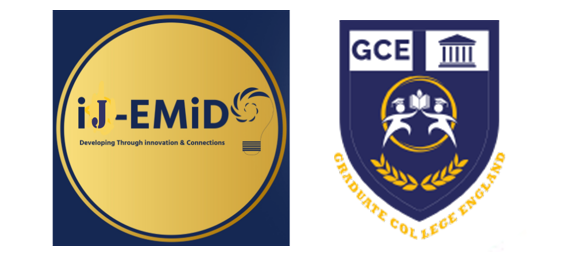Factors influencing Chinese female millennials clicking like button on luxury clothing posts by influencers on social media platforms
Yu Zheng, XiuZhen Wang
Abstract
China is a rapidly growing luxury products market with the potential to be the largest luxury market worldwide especially in the digital area. This research aims to evaluate various motivations which influence Chinese female millennial clicking “like” button on luxury clothing posts by influencers on social media platforms. Users and gratifications theory and influencer identities theory are employed within this research. The research finding is, to increase Chinese female millennial social media engagement, luxury brands should choose admired type of influencers who have social bonding with their target Chinese buyers and who post interesting and funny types of posts frequently.
Keywords: Chinese female millennial, social media platforms, social media engagement, “liking” behavior, luxury clothing
Role of Volunteer Tourists in community development initiatives in Hyderabad area in South India
Ragasudha Vinjamuri
Abstract
Volunteer tourism has grown exponentially in recent years. The phenomenon records the volunteers traveling from developed countries to the developing countries to engage in community development and other humanitarian work. The purpose of this study is to critically evaluate the type of volunteers, their motivations to travel, activities they engage in, their role in tourism development and their interactions with the host community. The research was undertaken in Hyderabad, the capital of recently formed state of Telangana in India. Fifteen respondents were interviewed. Participants were mostly European, majority of them saw volunteering as learning experience or for personal development and as a means to experience cultural immersion. There were limitations including unwillingness of NGOs to let their volunteers accessed and spoken to, seasonality of visiting volunteers to India.
Keywords: Volunteerism, charitable engagement, cultural immersion, Volunteer Tourism, Voluntourism
Challenges Faced by Nigerian Women Entrepreneurs in the UK
Temitope Victoria Afolabi and Seema Sharma
Abstract
The aim of this paper is to explore the key challenges faced by Nigerian women entrepreneurs in the UK and make recommendations that can help address their entrepreneurial challenges. Qualitative method and case study approach, semi-structured face to face interview was used to gather the primary data from 7 businesses run by Nigerian women entrepreneurs in London. Thematic analysis of data was conducted using NVivo. The results indicate that there are significant challenges which have an effect on the level of entrepreneurial success of Nigerian women entrepreneurs in the UK.
Key words: Nigerian women entrepreneurs, entrepreneurial challenges, businesses
Brazil restructuring policies and its effects on economic growth- comparison between brazil and UKs economic model
Anderson O. Francisco and Azamat Firdous
Abstract
This paper aims to add some contribution to the understanding of the impact of open market reform on Brazil`s economy, marked by a strong influence and protectionist approach from the last five decades, this method seems not to represent any advantage to domestic business and society anymore. Instead, it contends the liberal reform proposed by the new government started in 2019, based on a market-driven approach, decentralization of federal power and global connection have more chance of providing sustainable economic growth.
Keywords: : Interventionism, Protectionism, Economic System in Transition, Liberalism, Global Connection.
Does Money Matter in the WAMZ – ARDL Bounds Tests for Neutrality and Superneutrality of Money towards Monetary Integration of West Africa
Peter Kehinde Mogaji
Abstract
The West African subcontinent (proposing monetary integration) deserves feasibility assessments in aspects of neutrality and superneutrality of money. This study, which is significant for the proposed monetary integration of the West Africa, provided answers to the question on if money matters within the proposed monetary union. The autoregressive distributed lag (ARDL) bound testing cointegration approach developed by Pesaran et al (2001) was employed to test money neutrality and money superneutrality in this research work. This cointegration method is no common in the investigation of neutrality and superneutrality of money. Finding and results generated in this study produced evidence to suggest that money is not neutral in four of the six West African monetary Zone -WAMZ countries. The superneutrality tests (and other sensitivity tests) however reveal more uniform non-superneutrality of money across the WAMZ
Keywords: Monetary integration, Monetary neutrality , ARDL model, WAMZ, GDP
one
Abstract

